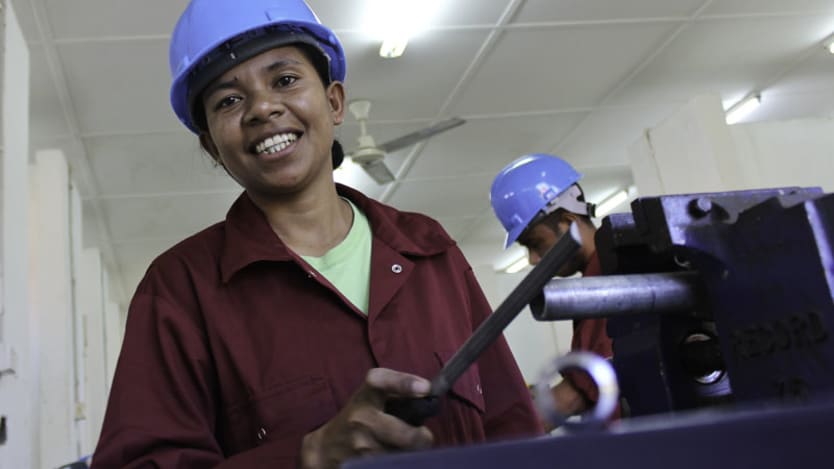Opinion: Business allies, here's how to work toward a gender equal world

This op-ed is part of a media partnership with Women Deliver 2019.
Over the past two years, the #MeToo and #TimesUp movements have increased the spotlight on gender equality. But, at a time when women’s voices are louder than ever, the world is still riddled with gender bias. Women continue to be held back — sometimes by long-standing cultural norms, sometimes by law, and sometimes by business and industry.
If we want to see a fundamental shift in women’s advancement, this heightened awareness must turn into action and impact across all sectors — including private sector companies such as ours. It’s time to get down to business, and it can’t be business as usual.
What’s happening at Women Deliver 2019
► The future of women at work is alarming — and promising, new report shows
► To close gap in unpaid care work, a new call to action asks men to do more
As two multinational companies with more than 100 years of experience each, we at P&G and Merck have seen the moral, social, and economic case for investing in gender equality within our companies and across society. We know that when gender equality increases, businesses perform better, economies thrive, communities are healthier, and the world is a better place for all.
Consider this: Countries leave $160 trillion on the table because of earning gaps between men and women. If women participated in economies equally to men in all countries, it would add as much as $28 trillion to GDPs by 2025. That’s 26% added to the global economy. And companies with strong female leadership on their boards have shown a return on equity that is 36.5% more than companies without.
Investing in women is not only smart for business; it carries a strong return on investment, and it’s the right thing to do. There is tremendous power in the private sector, and we have an opportunity to do more.
Our organizations recognize the importance of advancing women, who represent our employees, shareholders, producers, suppliers, partners, customers, and community members. We also recognize the role we can both play in leading this effort. So, we have stepped up.
Merck is leveraging its business and scientific expertise to save women’s lives by investing in Merck for Mothers and demonstrating a commitment to gender equality in its workplace, where women comprise nearly 50% of the workforce and 30% of leadership roles.
P&G is using its voice in advertising and media to ensure women are portrayed positively and accurately, to shine a light on bias, and to spark conversations that can change mindsets. P&G is also investing in and advocating for the elimination of gender-biased barriers to education for girls and economic opportunity for women, and has emphasized gender parity internally with women representing half of all managers and 40% of top company leadership.
We’re proud of these actions, but we know we can make faster progress and have a greater impact when we work in partnership with others. Gender inequality is complex and cross-sector in nature, which means the solutions must be too.
We need women and men as champions. And we need to team up with nonprofits, governments, and other private sector companies. By bringing people with diverse skills, experiences, and resources together across sectors, we’ll unlock new tools and approaches to advance this shared vision. Gender equality benefits all of us — and it will take all of us to achieve it.
This week, P&G and Merck are attending the Women Deliver 2019 Conference in Vancouver, Canada. With more than 8,000 people attending — including heads of state, corporate executives, and global advocates — it’s the world’s largest conference on gender equality and the health, rights, and well-being of girls and women. It’s a conference focused not on the problems we face, but rather on identifying and pushing for solutions.
Merck and P&G have joined forces with Women Deliver and the Deliver for Good Campaign, a partnership of more than 400 organizations working across sectors and issues to find innovate, holistic, and integrated solutions to advance gender equality across all the areas impacting girls’ and women’s lives. As founding members of the campaign’s Business Ally Network, we are breaking down barriers to work hand-in-hand with civil society to tackle some of the greatest challenges hindering progress for girls and women.
This is only the beginning.
As we stand in Vancouver alongside some of the greatest gender equality champions from around the world, we are calling on our private sector colleagues to join us. Let’s do our part as individual enterprises and think of unexpected ways we can work together to accelerate action toward a more gender equal world. When we are united by this shared vision, we can make the world a better place — for girls and women, and for all of us.
It’s not just the right thing to do; it’s the smart thing to do.
So, let’s do it together.
Search for articles
Most Read
- 1
- 2
- 3
- 4
- 5









